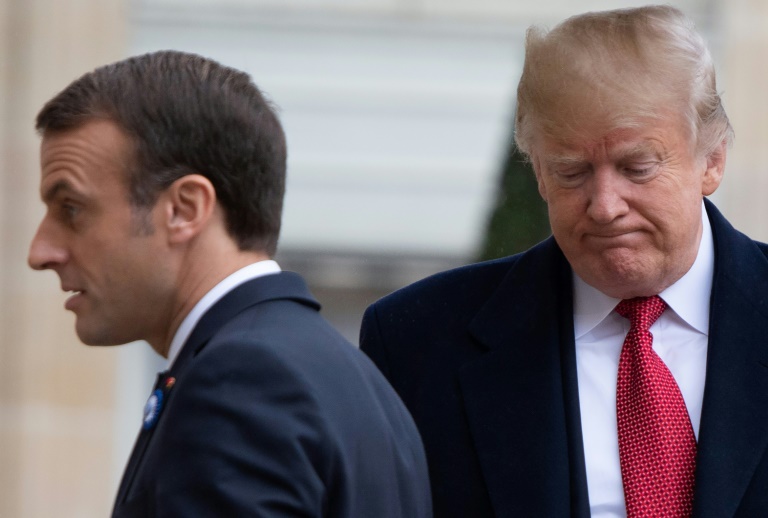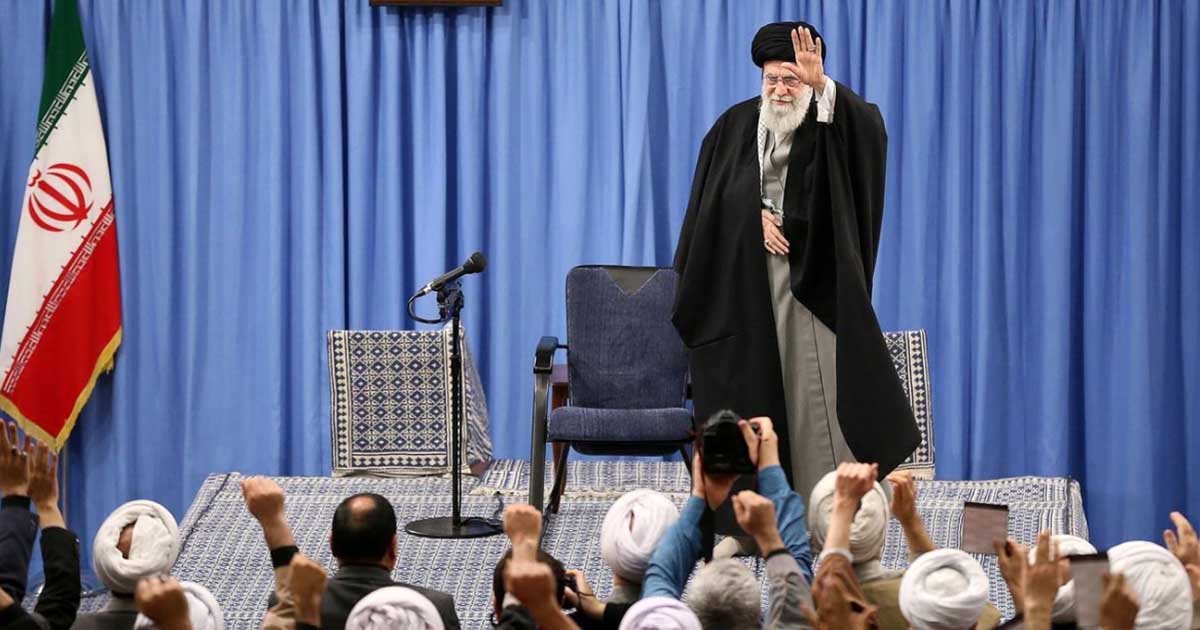Washington, D.C. – July 15, 2025
In a packed room at the Rayburn House Office Building, U.S. lawmakers convened a high-profile hearing on Tuesday July 15, to scrutinize the escalating political repression in Pakistan, highlighting issues ranging from rigged elections, judicial manipulation, human rights abuses, vicious treatment of minorities, media censorship and harassment of US Tech firms like Google by Pakistan’s military through its subordinate magistrates.
Hearing Notice — Pakistan: Ongoing Political Repression
Date: Tuesday, July 15th, 2025
Time: 2:00 – 4:00 PM
Location: Rayburn 2255Details: https://t.co/VpI1m5Wp8c
— Tom Lantos Human Rights Commission (@TLHumanRights) July 9, 2025
The Tom Lantos Human Rights Commission, a bipartisan body dedicated to advancing global human rights, heard compelling testimonies from experts and advocates who painted a grim picture of a nation teetering on the edge of authoritarianism under military influence – yet being courted by President Donald Trump who recently made history by inviting a serving Pakistani army officer to a luncheon meeting in White House.
Most Powerful Congressional Hearing on Pakistan – I have seen in the past 30 months! Tom Lantos Human Rights Commission, on July 15 2025, led by Reps. Chris Smith and Jim McGovern,
conducted by far the most informed Congressional Hearing on the issues and challenges inside and… pic.twitter.com/GYiJvgmHY5— Moeed Pirzada (@MoeedNj) July 16, 2025
Co-chaired by Rep. Chris Smith (R-N.J.) and Rep. James McGovern (D-Mass.), the session underscored growing concerns in Washington about Pakistan’s democratic backsliding, with witnesses urging the U.S. to reconsider its support for the current regime and push for reforms.
Read More: Smiling Betrayal: US Congressmen Embracing Butcher of Pakistani Democracy
The hearing, titled “Pakistan: Ongoing Political Repression,” came at a critical juncture, just four weeks after President Trump welcomed Pakistan’s Army Chief, Gen. Asim Munir in the White House (June 2025) and praised him as a strong man. It was shocking! US presidents have met military dictators but only when they had seized power and had become heads of the state like Gen. Ayub Khan in 1960’s or Gen. Zia in 1980’s and Musharraf after 9/11.
Significant international momentum is building against the current undeclared martial law in Pakistan.@sayedzbukhari delivered a compelling testimony to the Tom Lantos Human Rights Commission in the U.S. Congress. His address courageously and clearly articulated the concerns of… pic.twitter.com/zvqcYiC5P6
— PTI UK (@UKPTIOfficial) July 16, 2025
Many trace Pakistan’s current crisis to 2022, when former Prime Minister Imran Khan was ousted in a no-confidence vote allegedly orchestrated with military involvement. But Khan’s arrest, conviction on trumped up corruption charges, and imprisonment; all happened under the watch of Gen. Asim Munir.
Opening the proceedings, Co-Chair Smith set a somber tone, declaring the hearing open and emphasizing Pakistan’s long-standing struggles with human rights and democracy. “Pakistan has endured 33 years of direct military rule in its 77 years of independence,” Smith noted in his remarks, referencing reports from Freedom House that highlight the military’s outsized role in governance, media intimidation, and impunity for extralegal actions. Co-Chair McGovern echoed these concerns, describing the “challenge to human rights and due process of law in Pakistan due to suppression by the Pakistani military.” In a video clip shared widely on social media, McGovern elaborated on how military dominance has eroded judicial independence and stifled dissent, creating an environment where basic freedoms are compromised.
“Let me be very clear. Pakistan’s 2024 elections were neither free nor fair. They were engineered to silence the democratic voices of millions.”
Sayed Zulfi Bukhari @sayedzbukhari, testifying before the Tom Lantos Human Rights Commission of the US Congress @TLHumanRights, laid… pic.twitter.com/nFpPeZLryT
— PTI west punjab (@PTIWPOFFICIAL) July 16, 2025
Witness testimonies formed the core of the two-hour session, offering firsthand accounts and policy recommendations. Zulfi Bukhari, a former advisor to Imran Khan on international affairs and media, delivered one of the most pointed critiques. Representing PTI’s perspective, Bukhari asserted that the 2024 elections “were neither free nor fair. They were deliberately manipulated to suppress the democratic will of millions.” He detailed how PTI’s overwhelming popular support—evidenced by massive rallies and pre-election polls—was undermined through pre-poll rigging, internet shutdowns on election day, and post-vote tampering of results. Bukhari highlighted the case of Khan, who remains imprisoned despite international calls for his release, and accused the military-backed government of using anti-terrorism laws and military courts to silence opposition. “The mandate of the people of Pakistan was blatantly stolen in the most egregious electoral fraud in Pakistan’s history,” Bukhari stated in a clip from his testimony.
I’m truly touched by all the love and kind messages following the @TLHumanRights hearing in Congress.
It was a privilege to help expose the systematic political repression unfolding in Pakistan.
Our voices will only grow louder when we unite and speak out through every platform… pic.twitter.com/3kc807iy3d— Sayed Z Bukhari (@sayedzbukhari) July 16, 2025
Bukhari also exposed the regime’s transnational reach, noting efforts to pressure U.S.-based tech companies like Google and Meta to censor dissenting voices abroad. He referenced ongoing legal battles where Pakistani courts demand the removal of content critical of the government, potentially violating U.S. free speech protections.
Specifically, Bukhari drew attention to a recent order by a Pakistani magistrate directing Google to block 27 YouTube channels operated by Pakistani journalists and activists, many of whom are based overseas and focus on exposing corruption and human rights abuses. “Pakistan’s military regime is now trying to use those courts to blackmail U.S. tech companies to block dissenting voices even from U.S. soil,” Bukhari warned, prompting the commission to pledge further investigation into this emerging threat. He concluded with a stark choice for the international community: “We either let it slide further into dictatorship under the cover of law, or we stand with the people, who yearn for democracy, dignity, and justice.”
Jared Genser, managing director of Perseus Strategies, an international legal firm specializing in human rights, reinforced Bukhari’s points on judicial weaponization and took particular aim at the role of U.S. tech companies in enabling repression. Genser, who has represented high-profile political prisoners globally, described Pakistan’s courts as tools of the military establishment, used to legitimize repression. He cited the U.S. State Department’s 2023 Country Report on Human Rights Practices, which documents enforced disappearances, extrajudicial killings, and persecution of religious and ethnic minorities.
Building on Bukhari’s testimony, Genser sharply condemned Google’s apparent compliance with the magistrate’s order to block the 27 YouTube channels, calling it “shocking and deplorable.” He accused the tech giant of kowtowing to a regime that blackmails companies through controlled courts, thereby facilitating transnational censorship and undermining free expression. “Google is being blackmailed by the Pakistani regime,” Genser stated, urging Congress to hold tech firms accountable for aiding authoritarian practices.
It is an honor to stand in solidarity with former #Pakistan PM & #political #prisoner @ImranKhanPTI and its people to restore #democracy, #freedom, and #humanrights to #Pakistan. https://t.co/SCckKJc5B3
— Jared Genser (@JaredGenser) July 16, 2025
Co-chairs Smith and McGovern expressed strong agreement, with Smith labeling the situation a direct threat to American values and McGovern calling for U.S. policy to address how domestic companies enable foreign repression. Genser further urged Congress to condition U.S. aid to Pakistan on verifiable human rights improvements, including the release of political prisoners and restoration of media freedoms. “The U.S. must use its leverage to counter this repression, or risk enabling a partner that undermines shared democratic values,” he argued.
Ben Linden, Advocacy Director for Europe and Central Asia at Amnesty International, provided a broader human rights overview, focusing on the regime’s crackdown on journalists and activists. Linden highlighted cases of transnational repression, where Pakistani dissidents abroad face threats, harassment, and even assassination attempts. He referenced Amnesty’s reports on media censorship, including the blocking of social media platforms during protests and the arrest of journalists critical of the military. “The government’s control over communications has prevented free and fair elections and silenced voices calling for accountability,” Linden said.
Sadiq Amini, founder of the Afghanistan Impact Network, brought a regional perspective, discussing how Pakistan’s internal instability spills over into neighboring countries. Amini, an Afghan national, spoke on the persecution of ethnic minorities and refugees, linking Pakistan’s policies to broader South Asian security challenges. He noted the military’s role in harboring extremist groups while cracking down on domestic opposition, creating a hypocritical stance on terrorism that Bukhari also addressed.
Bukhari however clarified Khan’s record, countering argument of Amini, who had described Khan as a charismatic leader but one who for greater part had acted as a spokesman for Taliban. Bukhari argued that Khan was pro-peace and always knew that war is not a solution to problems in Afghanistan. He reminded Congressmen that if the United States didn’t defeat Taliban after two decades of warfare then to expect that Pakistan could have done that is unfair. Many in the room nodded in agreement.
The question-and-answer session was lively, with lawmakers like Rep. Ilhan Omar (D-Minn.) and others probing witnesses on U.S. policy implications, including the tech censorship issues raised. Attendees, including Pakistani-American activists and journalists, praised the hearing for amplifying suppressed voices. Uzma Rehman, current president of PakPac, a known Pakistani advocacy group, noted on social media that the discussion covered “political imprisonment, lack of free speech, judiciary, election rigging, [and] suppression of the voices of the Pakistani people.”
The United States has a moral and strategic obligation to stand up for Pakistanis suffering human rights violations.
At @TLHumanRights, I talked with @JaredGenser about the grave threats to Pakistani democracy. pic.twitter.com/eP7YBBqiyD
— Rep. Ilhan Omar (@Ilhan) July 16, 2025
Co-chairs – Smith and McGovern – both promised follow-up actions, including potential hearings and legislation to address troubling compliance of US Tech companies like Google with censorship demands, from authoritarian regimes like in Pakistan. And vowed increased scrutiny of U.S. military aid to Pakistan.
Read More: Pakistan’s Zombie Apocalypse: A Call for Annihilation
This hearing builds on a history of U.S. congressional engagement with Pakistan’s human rights issues. The Tom Lantos Commission, named after the late Holocaust survivor and congressman, has previously examined topics like religious persecution and electoral integrity in the country. Critics argue that despite billions in U.S. aid, Pakistan’s military continues to dominate politics, as evidenced by recent meetings between President Trump and Gen. Asim Munir, which Bukhari interpreted as a sidelining of civilian leader Shahbaz Sharif.
“Shocking and deplorable”. That is how @JaredGenser, international human rights lawyer, described @Google’s conduct at the @TLHumanRights hearing, for complying with a Pakistani regime court order to block independent journalists’ @YouTube channels. “Google shouldn’t be looking… pic.twitter.com/kKiUxzWBim
— PTI USA Official (@PTIOfficialUSA) July 16, 2025
Observers like journalist Moeed Pirzada described the session as “by far the most informed Congressional Hearing on the issues and challenges inside and around Pakistan” in recent years, noting the witnesses’ professional preparation and the commission’s alarm at developments, including the Google controversy. However, Pakistani government officials have dismissed such hearings as interference, maintaining that internal matters are sovereign.
Congressman Suhas @RepSuhas Big Thanks for participating both in the morning briefing and later in the Tom Lantos Commission Hearing! Your support for democracy, civil liberties and human rights across the world gives us all hope and strength!
And your deep interest and… https://t.co/zF0Z79kZyV— Moeed Pirzada (@MoeedNj) July 16, 2025
As the Trump administration grapples with its strategic partnership with Pakistan—vital for counterterrorism and regional stability—the hearing signals a potential shift toward conditioning relations on human rights progress. In a curious way, it has placed Pakistan back on Congressional radar for its failures of democracy, human rights abuses, media suppression with a new addition: transnational repression of journalists using Pakistani magistrates to harass US Tech firms like Google.
Watch the full congressional hearing below.














